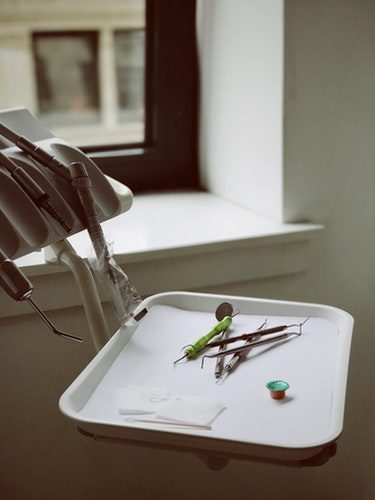Dental problems can cause some of the most uncomfortable and debilitating pains in your teeth and jaw. If you’ve ever had a toothache, we’re sure you’ll agree with us! Oral pains can be distracting or at their worst debilitating, and it can be tempting to immediately contact a dentist to put your mind at ease. However, not all cases of oral pains are a dental emergency. It’s important to know which ones are emergencies and which ones can wait.
We’ve compiled a list of the major problems for which you should see a dentist straight away, as well as minor ones that can wait. You should still visit a dentist if you suffer with any oral pain, but these are minor issues that do not require immediate medical attention.
Along with our guide to what is and isn’t a dental emergency, we’ve included some tips on how best to look after your dental health, and keep your teeth looking and feeling their best.
Major – Definitely a Dental Emergency
Some oral pains are signs of serious problems that should be addressed by a professional as soon as possible.
1. Unbearable Toothache
You shouldn’t ignore any toothache, but some pose a bigger threat than others. A toothache with a deep and ceaseless pain can be an indicator of severe tooth decay. If the pain is continuous and throbbing, even when no pressure is applied to the tooth, you should see a dentist right away. If the pain continues for more than 1 day, contact an emergency dentist so they can help. If your toothache is paired with fever, earache or any other symptoms, you should also see a dentist right away.
After a physical examination, the dentist may fill in the cavity which is causing pain, or when necessary extract the tooth entirely. Sometimes it is necessary to perform a root canal to remove infection from the nerve of the tooth. These days, with the help of advanced anesthetics, such procedures are painless and you will likely be given antibiotics to help the healing process.
2. Oral Abscess
An oral abscess is another cause for calling the dentist straight away. An abscess occurs when an infection forms a pocket of liquid around the root of the tooth, causing severe pain in the jaw and gum. An oral abscess cannot be left untreated, as this can lead to the infection spreading to other teeth or into the jaw and neck bone.
If your gum is swollen and red, you are experiencing pain in your tooth, gum or jaw, or you’re having trouble breathing and swallowing, you may be suffering with an oral abscess. Visit a dentist immediately to get it sorted.
3. Severely Cracked Tooth
If a tooth is severely cracked or fractured, you are at risk of developing an infection and may find it painful to chew or swallow. It can happen as a result of a tooth cavity, a fall or other accident. If the crack is large and causing you pain, see a dentist immediately.
4. Knocked Out Tooth
If your tooth has been knocked out, you need to act quickly. Get to the dentist as soon as possible – ideally within 30 minutes of the incident – as every minute can make a difference between saving and losing your tooth. To maximize the dentist’s chances of saving your tooth, put it in a container with some milk, or reinsert it into the mouth and hold it in there until your dentist is able to see you.
Minor Problems – The Dentist Can Wait
These oral problems might be disconcerting or painful, but they are not dental emergencies. Book an appointment to see your dentist to get these sorted, but no need to rush straight there.
1. Mild Toothache
Toothaches are never a pleasant business, but there are many causes for toothache, not all of which require urgent medical attention. Unless the toothache is causing you serious, ongoing pain or you’re showing other symptoms of being unwell (such as a fever or jaw pain), you do not need to rush straight to the dentist’s, although you should still them for a checkup so the problem doesn’t grow into something worse.
2. Chipped Tooth
A chipped tooth can happen for a variety of reasons. Whether from a sporting accident or from eating something crunchy, it is a common dental issue and it does not usually call for an emergency trip to the dentist. The enamel that coats your teeth provides a strong protective layer, but if enough force is placed upon it, pieces can break off. The likelihood of this happening increases as you age and your tooth enamel wears down.
Wash your mouth out with salt water to prevent infection and eat soft foods so as not to damage the tooth any further. Your dentist will be able to repair, fill or smooth off the chipped tooth to prevent any future problems from developing. Unless you are in serious pain, this is not considered a dental emergency.
3. Bleeding Gums
Bleeding gums are among the most common issues affecting oral health. Whether accompanied by pain or not, bleeding gums can be a sign of the early stages of gum disease. Bleeding gums are often caused by the buildup of plaque, and can be treated by improving your dental hygiene.
Visit a dentist for more advice on this matter, but bleeding gums are not cause of immediate action.
Tips for Healthy Teeth and Gums
Most oral pain and dental emergencies can be prevented by practising good dental hygiene and keeping your teeth healthy.
- Brush your teeth thoroughly at least twice – before breakfast and after dinner. Replace your toothbrush regularly. If you use an electric toothbrush, follow the manufacturer’s recommendations for replacing the head. Regular brushes helps to remove damaging sugars and plaque buildup
- Floss and use a dentist-approved mouthwash once a day to remove food and plaque that can get trapped between teeth
- Avoid smoking or chewing tobacco as this can lead to discoloration and gum disease
- Protect your teeth during sports using a dental shield
- Avoid drinking damaging liquids, such a fruit juice, coffee and alcohol. Drink through a straw to help protect your teeth
- Visit your dentist regularly – at least once every 6 months for a checkup and professional clean
There is a fine line between what is and isn’t a dental emergency, so it’s important that you’re informed before contacting your dentist if something doesn’t feel right. We hope this list is helpful for clarifying the different grades of oral problems, and helps you make the best decision for your teeth if you ever have an issue.
If you don’t think your pain is a dental emergency, but are worried all the same, call Dr Sheehan’s dental practice for a friendly chat.


